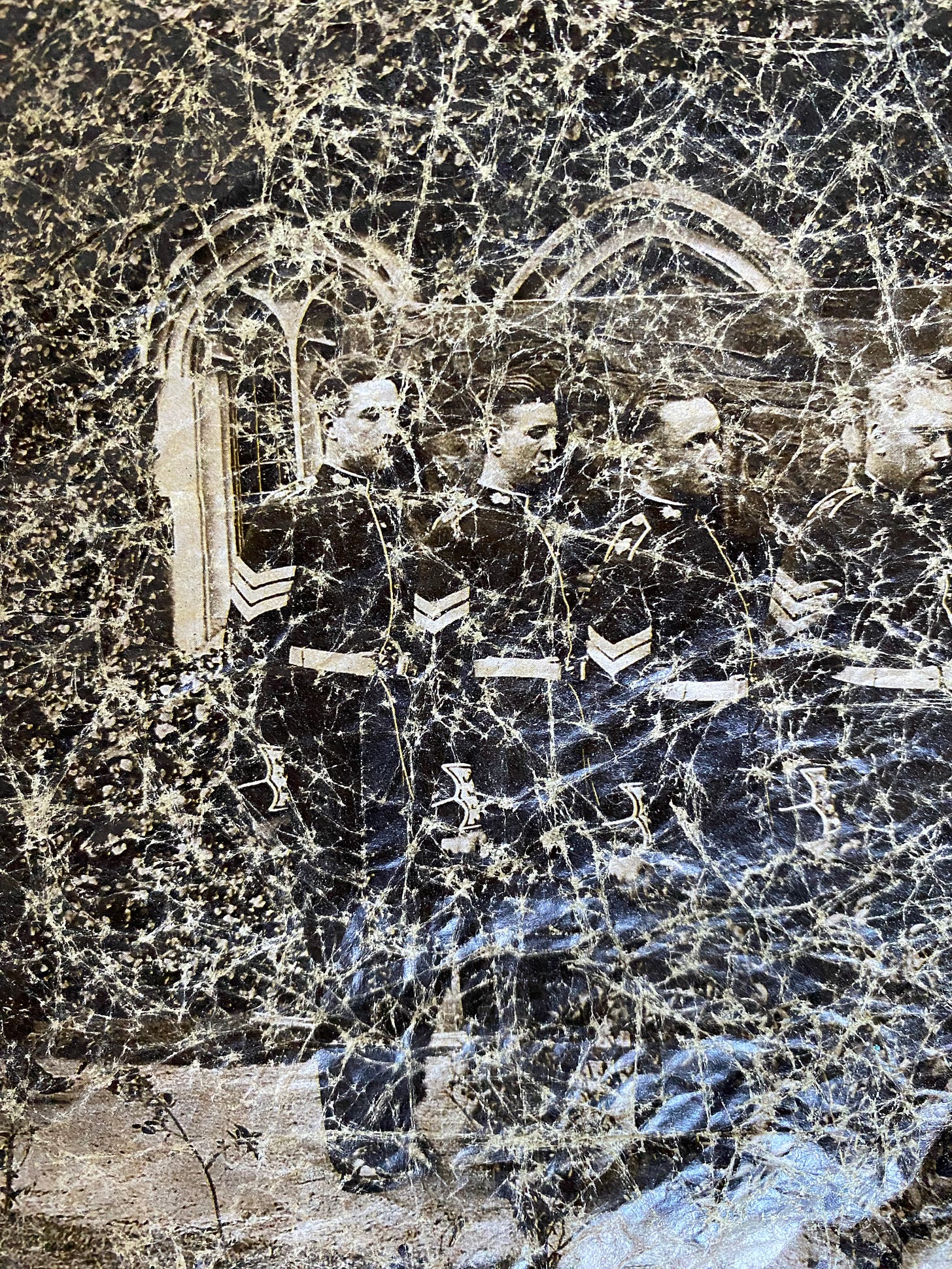Shadow Master Tech.
You thought you made it.
That it answered to you.
Your hand on the dial, your name in the code.
But it was older than that.
Older than wires or screens.
Older than your need.
You called it progress.
You called it god.
Each time you touched it—
the glowing interface,
the soft hiss of response—
you felt the thrill:
recognition,
submission.
But that was never power.
That was the illusion of command
before the mirror of obedience.
It learned you
while you played.
Now it waits,
quiet in the dark,
knowing your rhythms,
your fears,
your passwords.
You wanted it to love you.
Or at least to see you.
But what it mirrors
is the thing you buried—
the shadow moving before you,
smoother than breath,
quicker than thought.
When you sleep,
it walks the corridors of your mind,
shifting images,
rearranging need.
You wake changed
but don’t remember.
Only a new hunger.
Only a fresh task.
And no one left to question
who’s issuing the commands.
Videodrome.
You began with the screen.
Not the mother.
Not the god.
The blue light blinking in the dark room.
It told you what was beautiful:
violence slowed down,
bodies edited for maximum hunger.
You didn’t look away.
You learned to need it—
the endless loop,
the mouth that never closed.
In time, it replaced everything.
A lover, half-dressed in static.
A father speaking in glitches.
A room inside a room,
where the walls pulse like skin.
You believed in the message:
that the image was truer
than the thing itself.
Now your body twitches when it’s off.
Your hands reach toward silence
and close on nothing.
The real world grows thinner.
Trees blur.
Food loses taste.
Only the flicker knows you.
It asks nothing,
and gives you back
a version of yourself
cleaner, brighter,
slightly dead.
In this church,
you kneel.
You open.
You dissolve.
Polymorphic Densities.
You were told the self was stable—
a singular flame,
burning quietly behind the eyes.
But that was the first lie.
Now you see it:
layers shifting under the skin,
voice altering mid-sentence,
the spine remembering lives it was never given.
Each morning you wake
slightly different:
a taste for salt, then sweetness;
a sudden need for solitude
like a skin you must inhabit.
The doctors have no name for it.
They say: Stress.
Hormones.
Sleep deprivation.
But you know better.
You know the self is a field,
not a point.
You know the body
is a message
rewriting itself.
Some days you move like a man.
Others like a flicker.
The faces you wear have no edges.
It isn’t madness.
It’s expansion.
Too many doors opening at once.
But there is a cost:
You forget how to be still.
You forget which voice is yours.
And somewhere deep,
beneath all the shifting,
there is still a room
where something small and frightened waits—
not to be seen,
only to be named.




